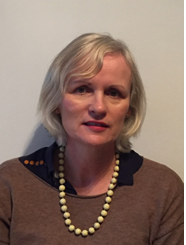
With little exception, Higher Education Institutions (HEIs) are prioritising internationalisation in their strategies and working to embed it across their educational and research programmes. Internationalisation can be defined as “the integration of an international or intercultural dimension into the tripartite mission of teaching, research and service functions” (Lumby & Foskett 2016). It brings increased diversity in student populations and opportunities for staff and student exchanges, which enrich the teaching and learning environment, mirror the diversity of the modern society in which we live and support preparation of our graduates for a global workplace.
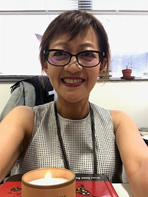
Within the health sciences, internationalisation provides opportunities for students to learn in the classroom and through work placements where they will experience diverse views, values and cultures. In these settings, through reflection and discourse, students can develop cultural awareness, defined as “recognizing and developing the attitude that one’s assumptions are different from others” (Campinha-Bacote J, 2002). Similarly, internationalisation within research programmes can benefit students, deepening their cultural awareness and facilitating an appraisal of the research process from a cultural perspective. With this purpose in mind, and, supporting the embedding of internationalisation in the College of Medicine, Nursing and Health Sciences, a new research module will be offered to PhD research students at NUI Galway from September 2021 on cultural awareness in order critically to appraise research and the research process in health and social sciences.
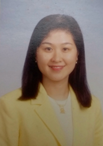
Our ‘Cultural awareness in Health and Social Care Research’ module will be fittingly delivered by a global team of academic experts in cultural awareness and cultural competence teaching and research with input from NUI Galway (Dr Yvonne Finn and Professor Michal Molcho), The Hong Kong Polytechnic University (Professor Doris Leung, Associate Professor Angela Chan and Dr Betty Chung), Malmö University (Professor Elisabeth Carlson and Professor Christine Kumlien) and La Trobe University, Australia (Associate Professor Melanie Bish). The module builds on the delivery and evaluation of a similar module delivered by academics in Sweden, Hong Kong and Australia over the past 6 years. Over this time the global academic team facilitated international research webinars embracing available ICT platforms. They were leaders at that time in using virtual platforms to create an ‘international classroom’ for students in their respective institutions. This mode of delivery echoes the reality of virtual/remote teaching in HEIs today, now standard practice in all our programmes, accelerated by the Covid-19 pandemic and related public health restrictions.
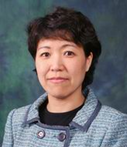
The module incorporates peer learning with an international twist: students from each participating university form an international study group, selecting an ICT platform and/or social medium to communicate within the group; this allows the group to reflect on the course webinars and to develop a group multi-media presentation. Webinars are jointly hosted by different members of the global team from their home institutions. Incorporating a ‘flipped classroom’ approach, following presentations from the global academic, the students listen to the perspectives and experiences of their international peers, and in turn reflect and share their own views of concepts and learning from the webinar.
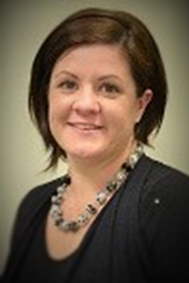
Learning strategies include the promotion of an open, curious and reflexive learning environment, fostering respect and a willingness to reflect with empathy with others. Cultural safety, whereby open discussion takes place in a safe non-judgemental atmosphere, allows both staff and student to share their own assumptions, reflect on them and collaborate with understanding on addressing mutual concerns. In addition, active appraisal and support of the international student groups by the global team takes place both during and between the webinars
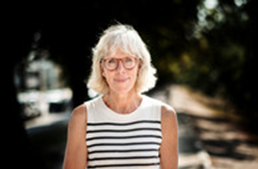
The module examines understandings of culture, cultural awareness and related concepts, such as cultural sensitivity, cultural safety, cultural humility and cultural competency. More in-depth discussions are facilitated on assumptions that may contribute to culture used as a prescriptive tool influencing ethical aspects in the conduct of research in health and social care settings. This process is supported by reading of key publications from the literature (pre-reading) and interactive discussions (virtual) among with international student groups. This is followed by a re-evaluation of strategies in the research process of recruitment, sampling, data collection and analysis, as well as of the presentation and dissemination of results. Finally, students have the opportunity to apply their learning of cultural awareness and related concepts to their own research. The international student groups work as a team in the preparation and delivery of their presentations. Developing cultural awareness in health and social science research students gives them the tools to develop research strategies that promote better representation of ethnic minority groups in their research projects. It will also support more inclusive research with increased impact and better outcomes for diverse patient groups.

NUI Galway values the opportunity to join the global team in this innovative, ‘Internationalisation at home’ module. It allows students to participate who may not be in a position to engage in an international student mobility, due to financial or other constraints and it is thereby equally accessible to all of our higher level research students in health and social sciences. In addition, it is a template that can be replicated in other undergraduate and postgraduate modules across our institution. We recently joined ENLIGHT, a European University network of 9 HEIs across Europe who are planning to develop similar modules that will be jointly owned and delivered by two or three of the partner universities in the network. This module on cultural awareness will allow us to bring our expertise and experience in the development of these modules.
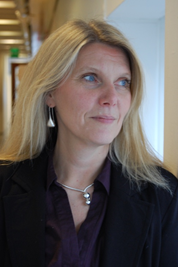
Finally, recent conversations with international student representatives across our institution confirm that students wish to experience internationalisation in our academic programmes. Suggestions from international students include more group work, discussions about cultures in the classroom, creation of a global classroom, case studies from diverse settings (including low to middle income countries), and more cultural awareness training for staff and students. Internationalisation for all of our students, both domestic and international, will require innovation; our ‘Cultural awareness in health and social sciences’ module is one example of an internationalisation educational ‘intervention’.
References
[1] Lumby J & Foskett N. Internationalization and culture in higher education Educational Management Administration & Leadership, 2016;44(1):95-111)
[2] Campinha-Bacote J. The process of cultural competence in the delivery of healthcare services: a modeul of care. Journal of Transcultural Nursing 2002;13(3):1810184